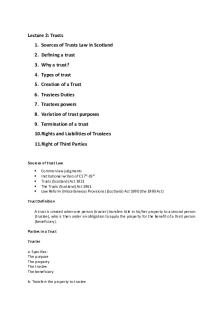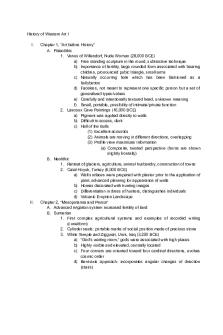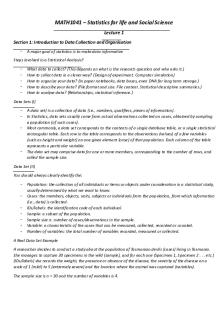Dishonored Notes PDF

| Title | Dishonored Notes |
|---|---|
| Author | CLARIEZZA MAE RECIO |
| Course | BS Accountancy |
| Institution | De La Salle-College of Saint Benilde |
| Pages | 1 |
| File Size | 40.7 KB |
| File Type | |
| Total Downloads | 32 |
| Total Views | 143 |
Summary
For accounting notes...
Description
Dishonored Notes Notes receivable not collected at maturity are considered dishonored notes. Dishonored notes are reclassified from notes receivable to accounts receivable because when dishonored they become an ordinary claim. • The amount transferred to accounts receivable is the maturity value of the note plus any direct costs attributable to the dishonor. Following the dishonor, the receivable is assessed for impairment. Illustration: ABC Co. received a P150,000, 60-day, 15% note receivable. At maturity date, the maker fails to pay. ABC Co. uses 360 days per year in computing for interests. The journal entry at maturity date is as follows: 150k + (150k x 15% x 60/360) = 150k + 3,750 = 153,750 Maturity Accounts receivable 153,750 date Notes receivable 150,000 Interest receivable 3,750 Discounting of Own Note When an entity borrows money from a bank and discounts its own note not a note from another party such transaction is accounted for as a regular loan transaction. Discounting here means that the bank deducted in advance the interest on the loan. The loan proceeds released to the borrower is equal to the principal less the interest deducted in advance. Illustration: On July 1, 20X1, ABC Co. discounted its own note of P1,000,000 to a bank at 12% for one year. The entry to record the discounting of own note is as follows: The “Discount on note payable” is a contra-liability account (deduction) to the note payable....
Similar Free PDFs
Popular Institutions
- Tinajero National High School - Annex
- Politeknik Caltex Riau
- Yokohama City University
- SGT University
- University of Al-Qadisiyah
- Divine Word College of Vigan
- Techniek College Rotterdam
- Universidade de Santiago
- Universiti Teknologi MARA Cawangan Johor Kampus Pasir Gudang
- Poltekkes Kemenkes Yogyakarta
- Baguio City National High School
- Colegio san marcos
- preparatoria uno
- Centro de Bachillerato Tecnológico Industrial y de Servicios No. 107
- Dalian Maritime University
- Quang Trung Secondary School
- Colegio Tecnológico en Informática
- Corporación Regional de Educación Superior
- Grupo CEDVA
- Dar Al Uloom University
- Centro de Estudios Preuniversitarios de la Universidad Nacional de Ingeniería
- 上智大学
- Aakash International School, Nuna Majara
- San Felipe Neri Catholic School
- Kang Chiao International School - New Taipei City
- Misamis Occidental National High School
- Institución Educativa Escuela Normal Juan Ladrilleros
- Kolehiyo ng Pantukan
- Batanes State College
- Instituto Continental
- Sekolah Menengah Kejuruan Kesehatan Kaltara (Tarakan)
- Colegio de La Inmaculada Concepcion - Cebu















